Robin Swann's career is travelling in a different direction to that of Phil Hogan, Dara Calleary and Barry Cowen. In November 2019, after two uneventful years when he failed to take the Ulster Unionist Party from its role as bit player in Northern Ireland politics, Robin threw in the towel as leader.
He was 48 at the time. Steve Aiken replaced him: in fact Mr Aiken was the only candidate for the 'push the bus up the mountain' position. Robin returned to the back benches.
But in January of this year, Robin got the first of two calls he wasn’t expecting. Thanks to a combination of public pressure and the formula drawn up by the then Northern Ireland Secretary, Julian Smith and Foreign Affairs Minister, Simon Coveney, a powersharing administration was put in place to end a three-year void.
The Ulster Unionists were entitled to one ministerial position: after all the plums were picked, on offer to them was the short straw/poisoned chalice - the Department of Health.
Would party leader, Steve Aiken or the other most prolific UUP issuer of press releases, Doug Beattie, take the job? No. In a surprise development, out of his self-imposed exile on the back benches emerged Robin Swann.
The second challenging call he wasn’t anticipating was provided by the coronavirus pandemic. As well as having to grapple with the longest waiting lists and other examples of the worst health indicators of any region in the UK, Mr Swann found himself fronting the fight against a virus that was spreading like wildfire around the world.
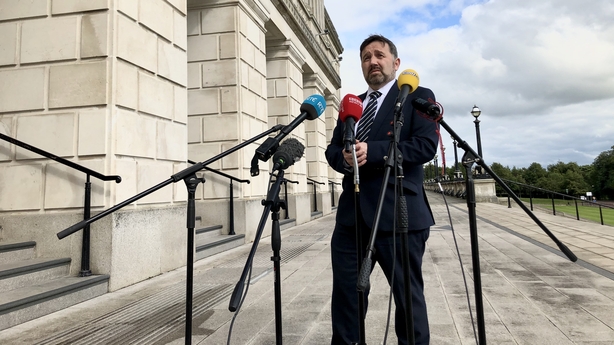
He is an unlikely champion. From a farming background and living in Kells, Co Antrim, he prefers pursuing his interest in racing pigeons to media outings. Before their falling out, when Arlene Foster and Michelle O’Neill appeared at news conferences alongside their health minister, they were the tall figures on the podium.
But Robin Swann is the Northern Ireland politician who has best connected with the public during the pandemic saga. He hasn’t dropped any ball or set off any landmines. Yet on Thursday, the Health Minister couldn’t hide his frustration about the impact of those licensed premises that were "flouting guidelines".
His exasperation came as Phil Hogan was packing his bags in Brussels, convinced he had broken no law, while acknowledging that he had displayed an unhealthy disrespect for 'guidelines'.
No vote of confidence came
The resignation of the Irishman who held the trade portfolio in the European Commission changes the chemistry in the Brexit manoeuvrings. Right up to the day of his departure, Phil Hogan was expecting the necessary vote of confidence from his line manager. When he clocked that it would not be forthcoming, he interpreted the absence of support and resigned. Messy haggling avoided.
He was one of a very small number of players and probably the only Irish one with the ideas and capacity to make a good fist at delivering a Brexit landing zone, acceptable to the EU, the UK and Ireland, south and north.
Very senior figures in the British government sensed that. So did authoritative figures in Brussels and in mainland Europe capitals.
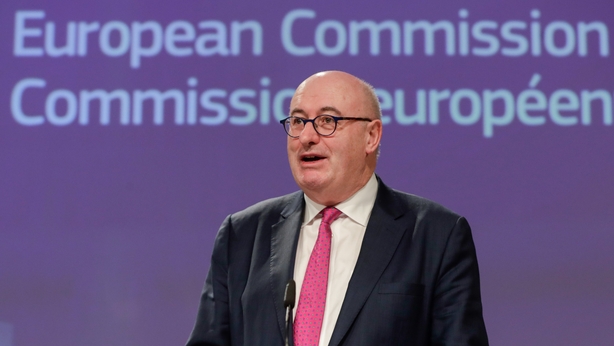
Diane Dodds was a DUP member of the European Parliament before she became Northern Ireland's Economy Minister in January. She had many disagreements with Phil Hogan during her Brussels years, but she never questioned the extent of his heft.
All three parties in the coalition Government lost confidence in Mr Hogan. They are aware of the possible Brexit consequences and how the extent of the burdens might shift, depending on No Deal v Agreement outcomes
They are also the ones charged with directing the country through the unending pandemic nightmare. They know the importance of public support. They weighed up all the factors and they reached their conclusion.
The manner in which the Irish firestorm migrated to Brussels and the way in which it was interpreted by Ursula von der Leyen was decisive. John Downing, who worked for the Irish Independent in Brussels for ten years, was surprised by her conclusions. So was I.
Wrongly I expected the Commission president to publicly scold her Commissioner but to take into account his political usefulness, his track record and how he was regarded in EU capitals and by Commission colleagues. I expected she would give him penalty points or put him on the Brussels Pulse List rather than take away his licence. Like the gardaí did.
Death by television
Tuesday was, essentially, death by television. In the current climate, in today's Ireland, where so many are stretched, any shade of arrogance by a public figure is a potentially fatal flaw. Humility as well as an unqualified acceptance of culpability are prerequisites if there is to be any hope of avoiding execution.
Phil Hogan didn’t show sufficient recognition of those ground rules in his Six One News interview with Tony Connelly.
In some ways it was Saipan all over again. On the night of the Roy Keane interview in 2002, an FAI statement concluded Roy Keane hadn’t displayed sufficient contrition. That rebuff effectively closed the file.
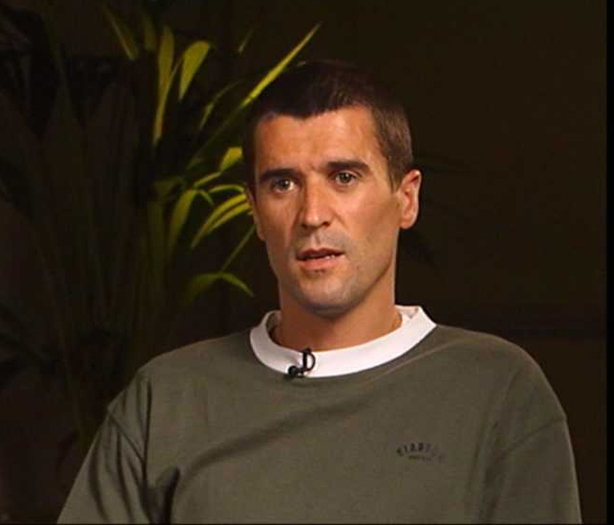
On Tuesday night, literally minutes after Phil Hogan’s interview in Brussels, Mary Regan was reporting live how a senior Government source concluded "he has to go. If he doesn’t the credibility of the entire European Commission on Covid is undermined".
Going back to the Saipan kerfuffle, while the Roy Keane material was still being edited in Manchester, one then leading FAI figure gave his on-the-record verdict about an interview he hadn’t seen or heard.
The circumstances in relation to Phil Hogan were different.
Even before he belatedly stepped forward to give the interview where he didn't show the required contrition, there was almost political consensus about his need to resign. Labour leader Alan Kelly was one of the first to publicly state his position. Of the three main parties, the Greens were probably the most circumspect as the pressure gathered momentum.
Fianna Fáil TD Jim O'Callaghan offered an alternative view on Sunday. (Even though he was surplus to Cabinet requirements, he also made a point of not criticising his party leader, Taoiseach Micheál Martin.)
Verona Murphy, the Independent Wexford TD, also argued the beleaguered Commissioner should be retained. A former Fine Gael by-election candidate, she could write her own handbook about lessons learned after misplaced steps taken in the political swamp.
Phil Hogan’s behaviour in a pandemic, a monster that has the world annoyed and frightened, was one factor that influenced Ursula von der Leyen. Another was the almost political consensus signalled from left, right and centre in Ireland that its Commissioner had to go.
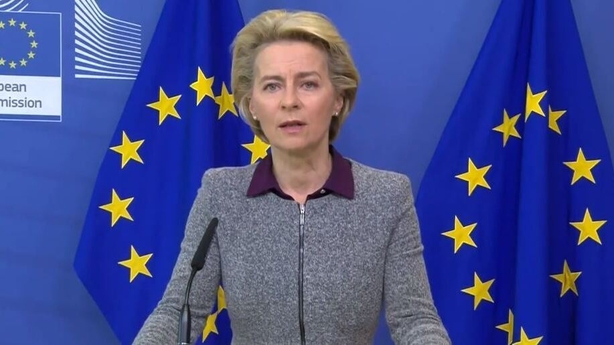
The main Opposition party said 'go'
The stance of the main opposition party, Sinn Féin, was significant. On many issues it is at loggerheads with the Government. It was the party which received the highest support in the last general election, but it is excluded from power. Sinn Féin’s resultant sense of injustice drives it to poke holes in a wobbly, vulnerable administration.
But on broad Government policy during the pandemic lockdown it was on the same page as the administration(s). It took a similar stance about Phil Hogan.
Had Mary Lou McDonald and her party taken a different view, it would have made for interesting politics. What if the Sinn Féin leader had decided in political terms that the errant Commissioner deserved punishment but not execution?
What if Mary Lou McDonald had said ‘yes, Phil Hogan has done wrong, made stupid, offensive mistakes and made a right mess of acknowledging it, but in big picture political terms, including Brexit, it is in Ireland and Europe’s interest to keep him there’, how might that have affected the debate?
Clearly, like all the other parties, Sinn Féin decided Phil Hogan’s behaviour, in the context of an ongoing pandemic, merited a red card.
The worst is yet to come
A difficult autumn and a winter of discontent lie ahead. South and north the numbers of virus infections are rising. Ireland is no longer a health success story. Even the neighbouring island is, for the moment at least, faring better. That is a huge change.
In response to its mistakes, the British government is dumping civil servants, not politicians. Among the significant victims, someone with expert knowledge of British-Irish relations, Cabinet Secretary Mark Sedwell, who had a close working relationship with the government's Secretary General, Martin Fraser.
The economic indicators are scary. There is no Brexit masterplan. The European Commission will have a temporary Trade Commissioner in place to support its main negotiator, Michel Barnier. Boris Johnson rarely if ever takes 'temps’ seriously. Germany, current holder of the six-month EU rotating presidency, made clear during the week there are no meaningful discussions taking place about Brexit.
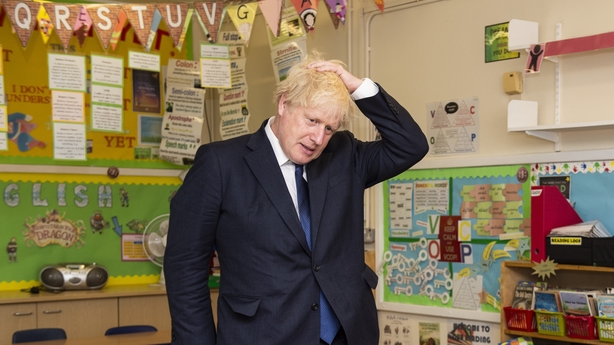
In the ‘fourth green field’, the stand-off continues between the two leaders of the power-sharing administration. After Sinn Féin’s behaviour at the funeral of Bobby Storey on 30 June, the DUP leader, Arlene Foster suspended her practice of hosting daily news conferences with her Sinn Féin partner, Michelle O’Neill.
She parked their disagreement, for one day only, when the Northern Ireland executive travelled to Dublin on 31 July for their first such meeting in over three years. Arlene and Michelle appeared together alongside Micheál Martin. But the stand-off resumed when the pair met Boris Johnson during his visit to Hillsborough on 13 August.
There is an inquiry taking place into the events around Bobby Storey’s funeral, including the requiem mass arrangements in Belfast, the ceremonies at the Republican plot in Milltown Cemetery and the happenings at Roselawn Crematorium. Always a good sign of trouble, the PSNI’s Chief Constable, Simon Byrne, opted to bring in an outsider to take charge of the investigation. A deputy chief constable of the Cumbria Police Force, Mark Webster, has been given the job.
To date only a small number of those involved have been interviewed. The pace of the sensitive activity is slow. Unless ginger is applied, the conclusions of the investigation are months rather than weeks or days away.
But when the work is eventually done and published, it is likely that "guidelines" will feature.
The ‘flouting of guidelines’ by licensed premises enraged Robin Swann. The non-adherence to guidelines did for (‘I broke no law’) Phil Hogan on Wednesday.
Will "guidelines" be a decisive issue when Mark Webster’s report about the events around Bobby Storey’s funeral is produced? Or will the big picture/small picture balance be different then? Might Sinn Féin remind the DUP how it behaved when the Renewable Heat Incentive Inquiry report was published and it delivered a few punches, but no knock-out blow?
To keep the bus on the road, will there again be a reluctance to throw any of its occupants under it?






